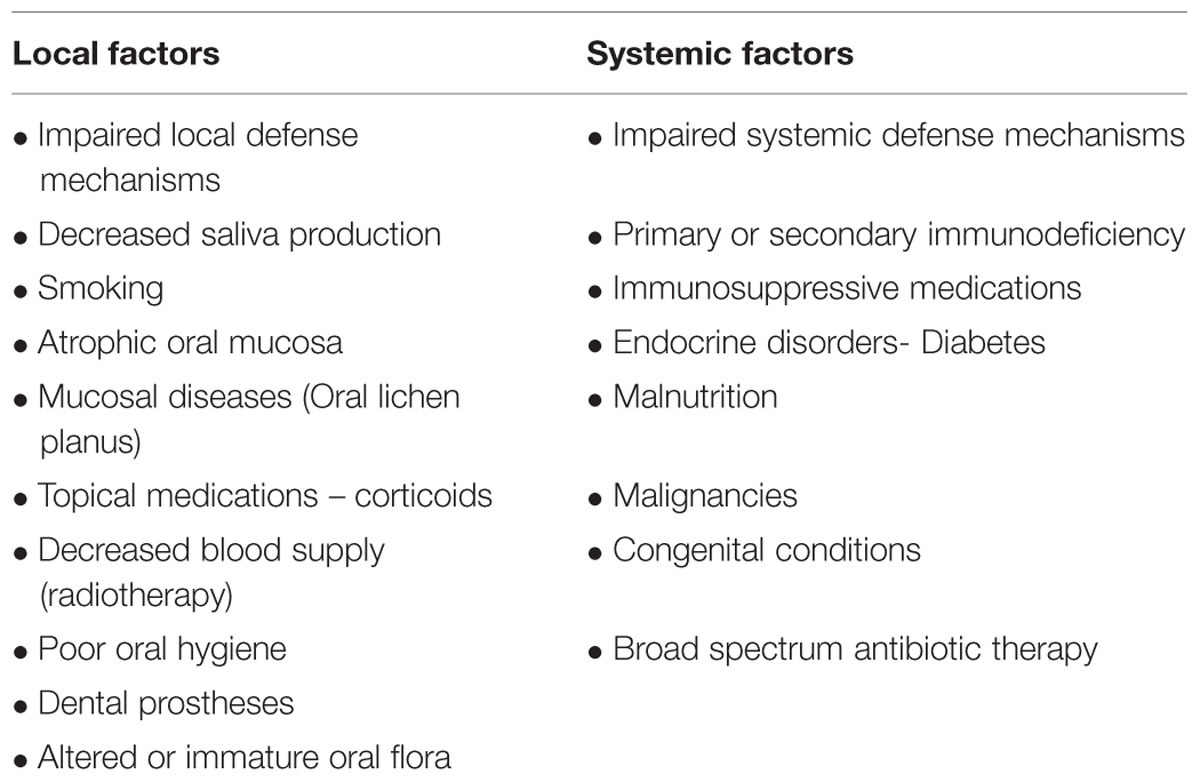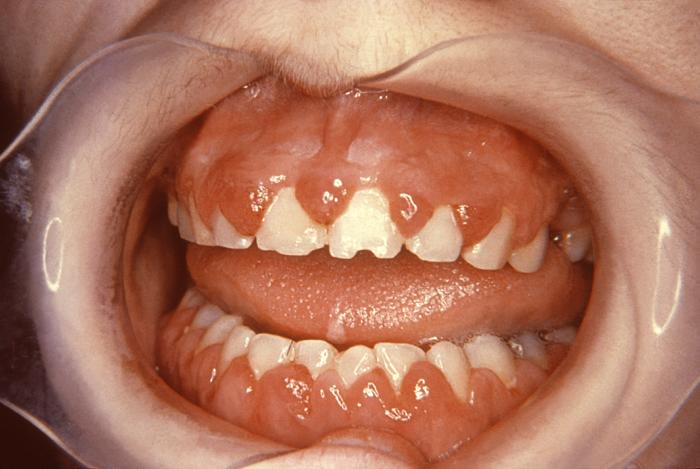Oral thrush, also known as oral candidiasis, is a common fungal infection that affects the mouth. It occurs when there is an overgrowth of a type of yeast called Candida albicans. While this condition is not life-threatening in most cases, it can cause significant discomfort and may indicate underlying health issues if it persists or recurs frequently. Understanding the causes, symptoms, and treatment options for oral thrush is essential for managing and preventing this condition effectively.

What Is Oral Thrush?
Oral thrush is a condition characterized by the overgrowth of a fungus in the mouth. This fungus, Candida albicans, is naturally present in small amounts in the human body, including the mouth, digestive tract, and skin. However, certain factors can disrupt the balance of microorganisms in the body, leading to an overgrowth of Candida and resulting in oral thrush.
The infection typically appears as creamy white lesions on the tongue, inner cheeks, roof of the mouth, or throat. These lesions may be slightly raised and can cause discomfort, especially when eating or swallowing. In severe cases, the infection can spread to other parts of the body, making early diagnosis and treatment crucial.
Causes of Oral Thrush
Several factors can contribute to the development of oral thrush. Understanding these causes can help individuals take preventive measures and manage the condition more effectively.
Weakened Immune System
A compromised immune system is one of the primary risk factors for developing oral thrush. People with conditions such as HIV/AIDS, cancer, or diabetes are more susceptible to this infection because their immune systems are less capable of controlling the growth of Candida. Additionally, individuals undergoing treatments like chemotherapy or radiation therapy may experience weakened immunity, increasing their risk of oral thrush.
Use of Antibiotics
Antibiotics are designed to kill harmful bacteria, but they can also disrupt the natural balance of microorganisms in the body. When antibiotics eliminate beneficial bacteria in the mouth and digestive tract, it creates an environment where Candida can thrive. Prolonged or frequent use of antibiotics increases the likelihood of developing oral thrush.
Poor Oral Hygiene
Maintaining good oral hygiene is essential for preventing oral thrush. Poor dental care, such as infrequent brushing and flossing, can lead to an accumulation of bacteria and fungi in the mouth. This buildup provides an ideal environment for Candida to grow and cause infection.
Dry Mouth
Saliva plays a crucial role in maintaining oral health by washing away food particles and neutralizing acids produced by bacteria. Conditions or medications that reduce saliva production can lead to dry mouth, which increases the risk of oral thrush. Common causes of dry mouth include dehydration, certain medications, and medical conditions such as Sjogren’s syndrome.
Hormonal Changes
Hormonal fluctuations, particularly during pregnancy, can alter the balance of microorganisms in the body. Pregnant women are more prone to developing oral thrush due to changes in estrogen levels, which can promote the growth of Candida.
Use of Dentures
Individuals who wear dentures, especially if they do not fit properly or are not cleaned regularly, are at a higher risk of developing oral thrush. Poorly fitting dentures can create spaces where Candida can accumulate, while inadequate cleaning allows the fungus to multiply.
Symptoms of Oral Thrush
Recognizing the symptoms of oral thrush is essential for early diagnosis and treatment. The signs of this condition can vary depending on the severity of the infection and the individual’s overall health.
Creamy White Lesions
The most common symptom of oral thrush is the presence of creamy white lesions on the tongue, inner cheeks, gums, or roof of the mouth. These lesions may appear slightly raised and have a cottage cheese-like texture. In some cases, the lesions can extend to the throat, causing difficulty in swallowing.
Redness and Soreness
Areas affected by oral thrush may become red and sore, leading to discomfort or pain. This can make eating, drinking, or speaking challenging, particularly if the infection spreads to the throat.
Bleeding
If the lesions are scraped or rubbed, they may bleed. This can occur accidentally during brushing or eating, further irritating the affected areas.
Loss of Taste
Some individuals with oral thrush may experience a loss of taste or a metallic taste in the mouth. This symptom can affect appetite and overall enjoyment of food.
Cotton-Like Feeling
People with oral thrush often describe a cotton-like sensation in their mouths. This feeling can be accompanied by dryness and discomfort, making it difficult to maintain normal oral functions.
Cracking at the Corners of the Mouth
In some cases, oral thrush can cause cracking or fissures at the corners of the mouth. This condition, known as angular cheilitis, is often associated with fungal infections and can exacerbate discomfort.
Treatment Options for Oral Thrush
Effective treatment for oral thrush depends on the severity of the infection and the underlying cause. In most cases, the condition can be managed with antifungal medications and lifestyle adjustments. Below are some common treatment approaches:
Antifungal Medications
Antifungal medications are the primary treatment for oral thrush. These medications work by targeting and eliminating the overgrowth of Candida. Depending on the severity of the infection, treatment options may include:
- Topical Antifungals: These medications are applied directly to the affected areas in the form of gels, lozenges, or mouth rinses. They are often recommended for mild cases of oral thrush.
- Oral Antifungals: For more severe or persistent infections, oral antifungal tablets or capsules may be prescribed. These medications are absorbed into the bloodstream to target the infection systemically.
Improving Oral Hygiene
Maintaining good oral hygiene is crucial for both treating and preventing oral thrush. Individuals should brush their teeth at least twice a day and floss daily to remove food particles and plaque. Using a soft-bristled toothbrush can help prevent irritation of the mouth tissues.
Proper Denture Care
For individuals who wear dentures, proper care is essential to prevent oral thrush. Dentures should be removed and cleaned daily with a denture cleaner. It is also important to ensure that dentures fit properly to avoid creating spaces where Candida can accumulate.
Addressing Underlying Health Conditions
If oral thrush is caused by an underlying health condition, such as diabetes or a weakened immune system, addressing the root cause is critical. Managing blood sugar levels, adhering to prescribed treatments, and working closely with healthcare providers can help reduce the risk of recurrent infections.
Dietary Adjustments
Making dietary changes can also support the treatment of oral thrush. Consuming foods rich in probiotics, such as yogurt, can help restore the balance of beneficial bacteria in the body. Additionally, reducing sugar intake can limit the growth of Candida, as the fungus thrives on sugar.
Hydration and Saliva Production
Staying hydrated is important for maintaining saliva production and preventing dry mouth. Drinking plenty of water throughout the day can help wash away food particles and reduce the risk of infection. Chewing sugar-free gum or sucking on sugar-free candies can also stimulate saliva flow.
When to Seek Medical Attention
While oral thrush is generally not a serious condition, there are instances when medical attention is necessary. Individuals should consult a healthcare provider if:
- The symptoms persist despite treatment.
- The infection spreads to the throat or other parts of the body.
- There is difficulty swallowing or breathing.
- Underlying health conditions, such as HIV/AIDS or cancer, are present.
Early intervention can prevent complications and ensure effective management of the condition.
Preventing Oral Thrush
Prevention is key to avoiding the discomfort and inconvenience of oral thrush. By adopting healthy habits and addressing risk factors, individuals can significantly reduce their chances of developing this condition.
Practice Good Oral Hygiene
Regular brushing and flossing, along with routine dental checkups, can help maintain a healthy balance of microorganisms in the mouth. Replacing toothbrushes frequently and using antibacterial mouthwash can further reduce the risk of infection.
Limit Antibiotic Use
Using antibiotics only when necessary and as prescribed by a healthcare provider can help prevent disruptions to the natural balance of microorganisms in the body. Discussing alternative treatments with a doctor may also be beneficial.
Manage Underlying Health Conditions
Effectively managing chronic conditions such as diabetes or HIV/AIDS can strengthen the immune system and reduce the risk of oral thrush. Regular monitoring and adherence to treatment plans are essential for maintaining overall health.
Stay Hydrated
Drinking adequate amounts of water and avoiding habits that contribute to dry mouth, such as smoking or excessive alcohol consumption, can help prevent oral thrush. Using a humidifier at night can also improve moisture levels in the air.
Eat a Balanced Diet
Incorporating nutrient-rich foods into the diet can support immune function and promote oral health. Foods high in vitamins and minerals, such as fruits, vegetables, and whole grains, can help maintain a healthy balance of microorganisms in the body.





